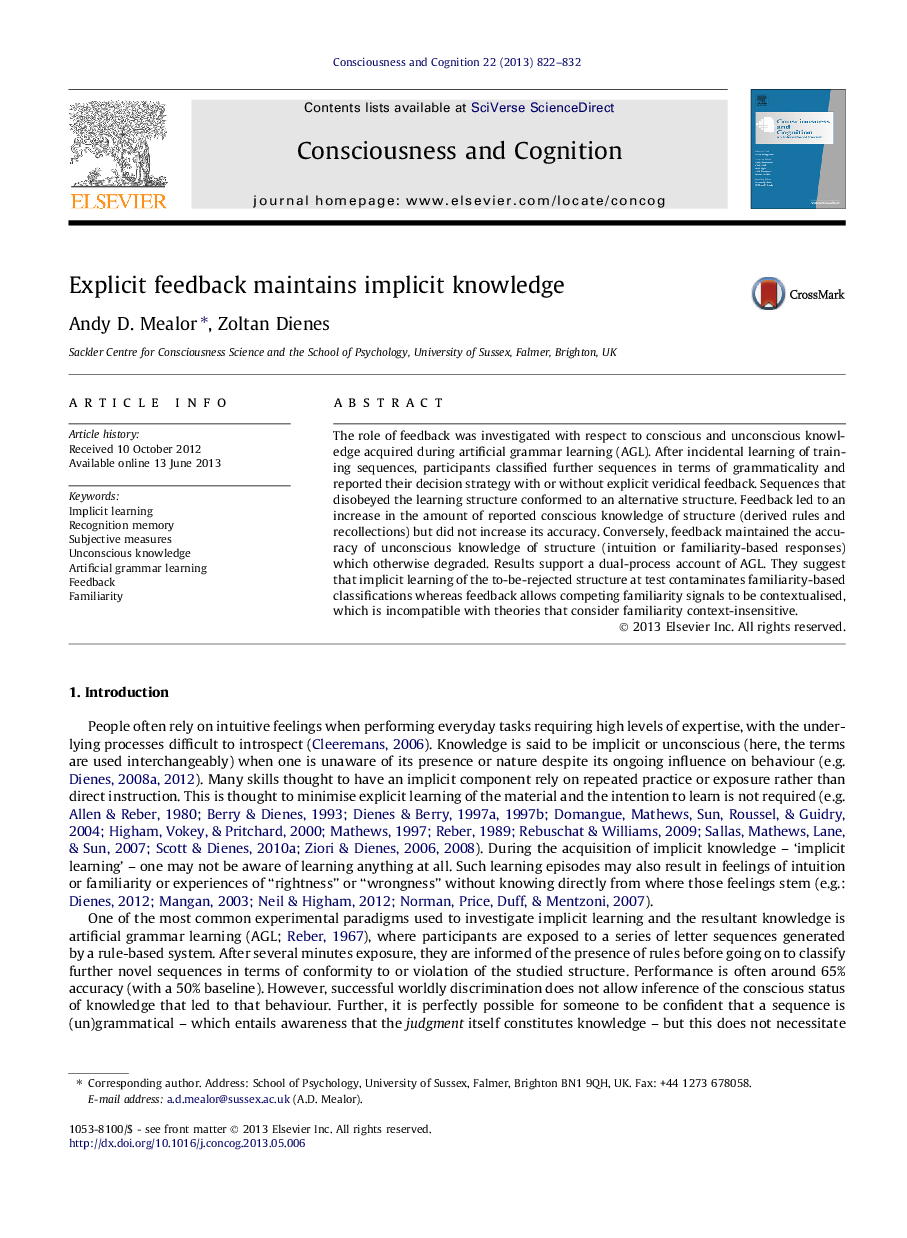| Article ID | Journal | Published Year | Pages | File Type |
|---|---|---|---|---|
| 10458460 | Consciousness and Cognition | 2013 | 11 Pages |
Abstract
The role of feedback was investigated with respect to conscious and unconscious knowledge acquired during artificial grammar learning (AGL). After incidental learning of training sequences, participants classified further sequences in terms of grammaticality and reported their decision strategy with or without explicit veridical feedback. Sequences that disobeyed the learning structure conformed to an alternative structure. Feedback led to an increase in the amount of reported conscious knowledge of structure (derived rules and recollections) but did not increase its accuracy. Conversely, feedback maintained the accuracy of unconscious knowledge of structure (intuition or familiarity-based responses) which otherwise degraded. Results support a dual-process account of AGL. They suggest that implicit learning of the to-be-rejected structure at test contaminates familiarity-based classifications whereas feedback allows competing familiarity signals to be contextualised, which is incompatible with theories that consider familiarity context-insensitive.
Keywords
Related Topics
Life Sciences
Neuroscience
Cognitive Neuroscience
Authors
Andy D. Mealor, Zoltan Dienes,
